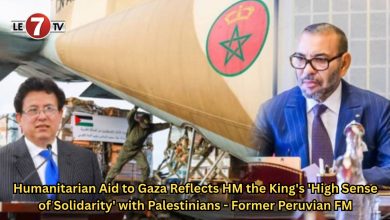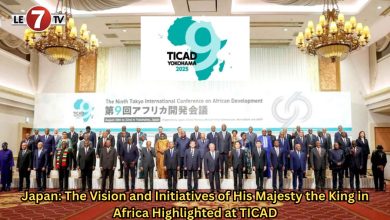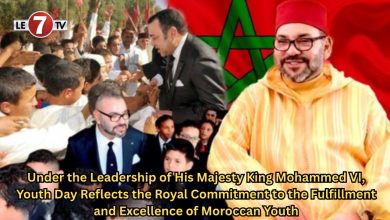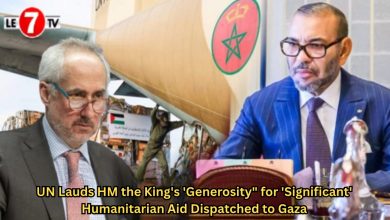Omar Hilale: The Sahara is Moroccan by History, Law, and the Free Will of its People
Morocco’s Permanent Representative to the United Nations, Ambassador Omar Hilale, affirmed during the UN C24 (Special Committee on Decolonization) regional seminar for the Pacific that “The Sahara is Moroccan by history, law, and the free will of its people.”
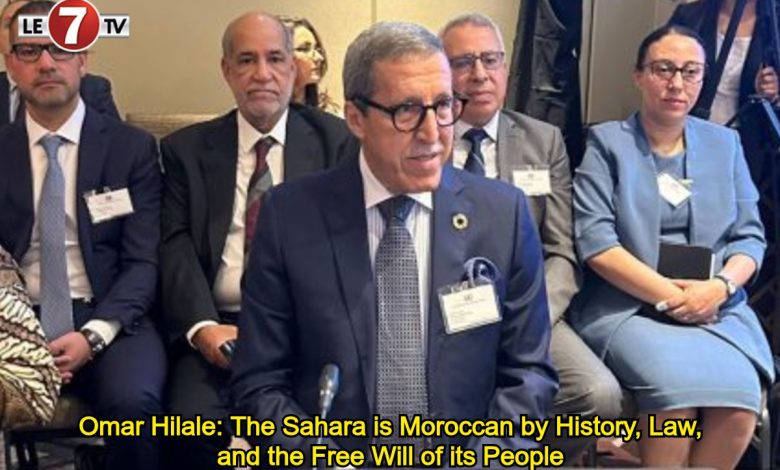
“It is time for the other parties to recognize this and work together to build a future of peace, stability, and cooperation for our region and our continent,” Mr. Hilale emphasized at the seminar held from May 21 to 23 in Dili, Timor-Leste.
The ambassador also denounced Algeria’s delaying tactics, which he said obstruct efforts to resolve the regional dispute over the Moroccan Sahara, and its broader strategy of destabilization in the Maghreb region and beyond.
“Despite Morocco’s commitments and the UN’s continuous efforts, the political process to resolve this regional dispute continues to be hindered by Algeria’s delaying maneuvers. While it claims not to be a party to the conflict, Algeria plays a central role,” Hilale pointed out. He noted that Algeria hosts, arms, funds, and diplomatically supports the separatist group Polisario, and persists in an unrealistic and destabilizing stance toward the region.
Hilale emphasized that in the face of this deadlock maintained by Algeria, the international community appears to have made its decision, citing the ongoing wave of countries withdrawing their recognition of the so-called “phantom entity” (Polisario). He highlighted that more than 116 countries around the world now explicitly support Morocco’s Autonomy Initiative, and about 30 have opened consulates in Laâyoune and Dakhla, thereby recognizing Morocco’s sovereignty over its southern provinces.
Regarding the continued examination of the Moroccan Sahara issue by the C24 Committee, Hilale stated that this condemns the matter—wrongly—to a static view disconnected from the deep evolution the issue has undergone and continues to undergo.
“As you know, upon joining the United Nations, the Kingdom of Morocco initiated efforts with the 4th Committee and the C24 to free its Sahara from colonial rule. After nearly two decades of tough negotiations, Morocco recovered its Saharan provinces through the Madrid Agreement in November 1975, which was acknowledged by the UN General Assembly in Resolution 3458B of December 1975,” the ambassador recalled.
He added that since then—and following Algeria’s creation of the armed separatist group Polisario—the issue of the Moroccan Sahara has evolved into one of peace and security, justifying its handling by the UN Security Council under Chapter VI of the UN Charter for the peaceful resolution of disputes.
He also observed that the Security Council definitively ruled out the option of a “self-determination referendum,” sometimes mentioned by some. He noted that the UN Secretary-General concluded in his February 17, 2000 report (S/2000/131) that an “orderly and consensual implementation of the Settlement Plan” was impossible.
Since then, the Security Council has firmly shifted toward seeking a mutually acceptable political solution aligned with the reality on the ground and the region’s stability needs. Hilale noted that all Security Council resolutions stress the need for a political solution based on compromise.
According to Hilale, this paradigm shift reflects the UN’s intent to move away from a binary and rigid framework toward an approach adapted to evolving global understanding and in respect of international law.
“These developments have paved the way for the Moroccan Autonomy Initiative to emerge as the sole basis for a sustainable and lawful resolution,” the ambassador declared. He emphasized that this Initiative, proposed in 2007 and described by the Security Council as serious and credible, is in fact an innovative and bold proposal for settling the dispute. It offers substantial autonomy to the populations of the Sahara within the framework of Morocco’s sovereignty and territorial integrity.
The ambassador also highlighted that the Kingdom remains committed to a lasting political solution and extends a hand to all those who genuinely wish to turn the page on this regional dispute and open the way to mutually beneficial cooperation.
However, he warned that “this commitment cannot be one-sided or eternal. It requires a genuine willingness for dialogue from the other parties, especially Algeria, whose role can no longer be ignored. The key to progress in the political process lies in Algiers, as recognized by the former Personal Envoy, the late Peter Van Walsum, in 2008.”
Hilale concluded by stating that the time has come to reassess, with clarity and courage, how this issue is addressed within the Committee.
Omar Hilale is leading a high-level Moroccan delegation to this C24 regional seminar, alongside Morocco’s ambassador to Jakarta, Redouane Houssaini. The delegation includes several officials from the Ministry of Foreign Affairs, African Cooperation, and Moroccan Expatriates, as well as the Vice-President of the Royal Advisory Council for Saharan Affairs (CORCAS).
Additionally, two elected officials from the Moroccan Sahara—Ms. Ghalla Bahiya from the Dakhla-Oued Eddahab Region and Mr. M’hamed Abba from the Laâyoune-Sakia El Hamra Region—are participating in the seminar upon the invitation of the Committee Chair, as has been the case for several years.


